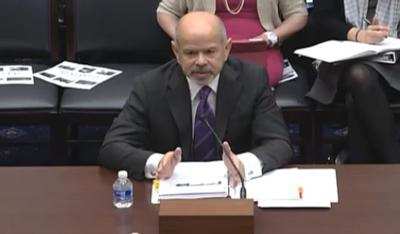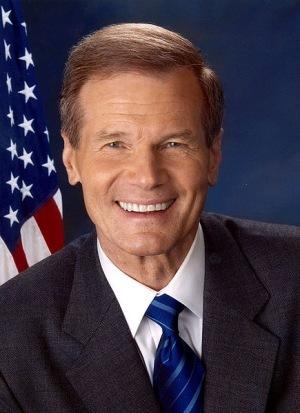Testifies Before Senate Commerce Committee
FAA Administrator Michael Huerta told the Senate Commerce Committee Tuesday that one of the primary concerns about the implementation of NextGen is the lack of stable funding against a "very challenging fiscal backdrop."

In his opening testimony before the committee, Huerta said "What the FAA needs in reauthorization is stability and predictable funding. We also need the flexibility to identify priorities and match our services and infrastructure with the needs of our users."
Huerta said that the agency achieved a major milestone last month by completing one of the largest automation changeovers in the history of the FAA. The new high altitude air traffic control system – known as ERAM - has been completed, Huerta said. "This system will accommodate the technologies of NextGen, giving the United States a more powerful air traffic system.
"ERAM, or En Route Automation Modernization – is not just a faster computer system, it’s a network that replaces our legacy system, which had its roots in the 1960s. ERAM processes data from nearly three times the number of sensors as the legacy system. It can track and display more high altitude flights and enable controllers to handle additional traffic more efficiently."
Some members of Congress have expressed a need for an overhaul of the agency, including a privatization of the Air Traffic Control system as has been implemented in Europe and other countries. Rotor News reports that Huerta said he is open to discussions about a reorganization, any such discussion must be "based on facts." He asked for specifics about what problems need to be solved, and warned that there could be "unintended consequences" from sweeping changes in the agency. And, he said, a large-scale overhaul would not necessarily lead to more rapid implementation of NextGen.

At least one Senator had concerns about the screening of airport employees in light of recent incidents in Atlanta and Seattle. Senator Bill Nelson (D-FL) (pictured), the ranking minority member of the committee, pressed Huerta about funding to help airports screen employees who have access to secure areas.
Nelson’s inquiry comes in the wake of an incident at Atlanta's Hartsfield-Jackson International Airport in which federal agents arrested a baggage handler last December on charges related to weapons smuggling on passenger flights.
And Monday, another incident in Seattle involved a baggage handler taking off in the cargo belly of an airplane, claiming he fell asleep there.
During Tuesday’s hearing of the Commerce Committee, Nelson asked FAA Administrator Huerta if agency funds were available to help airports implement tougher passenger-like screening of employees who have access to sensitive areas and to airplanes.
“That’s certainly a possibility,” Huerta responded. “The screening … is a shared responsibility between the Transportation Security Administration and the local airport authority, and the FAA can support that.”
For example, Huerta said, “airport perimeter fencing is certainly something that we regard as a high priority for airport grants.”
Already, the TSA is reviewing the internal security procedures at the roughly 450 U.S. commercial airports. Only two airports in the nation have voluntarily implemented full, passenger-like screening for employees with access to secure areas.
Within the past month, Nelson visited and reviewed both - Miami International Airport and Orlando International Airport.
The lawmaker believes both airports could serve as a model for others around the country looking to toughen employee screening practices.
(Images from file)
 NTSB Final Report: Rutan Long-EZ
NTSB Final Report: Rutan Long-EZ ANN FAQ: Turn On Post Notifications
ANN FAQ: Turn On Post Notifications Classic Aero-TV: ICAS Perspectives - Advice for New Air Show Performers
Classic Aero-TV: ICAS Perspectives - Advice for New Air Show Performers ANN's Daily Aero-Linx (06.28.25)
ANN's Daily Aero-Linx (06.28.25) Aero-News: Quote of the Day (06.28.25)
Aero-News: Quote of the Day (06.28.25)




